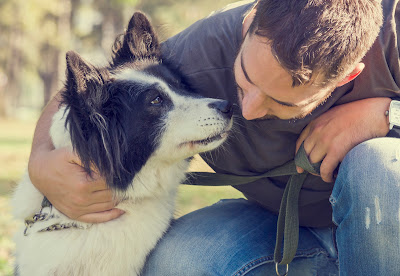Most people know that
the local shelter is overflowing with dogs who are looking for a forever home.
And adopting an animal is probably something that goes through your mind before
you get a new pet. But the truth is that many people still buy dogs from
breeders or friends instead of adopting one from the shelter for 3 major
reasons.
1.
They
Believe the Myths about Pet Adoption
There is a lot of
misinformation about pet adoptions, and it’s difficult to dissuade people from
them. After all, it only takes one bad experience to bad-mouth every animal
inside the shelter.
Myth #1: It’s Impossible to Find the
Dog You Want
Whether you’re looking
for a specific breed, age, or disposition, you can find the dog you want in a shelter or from a foster home. The
only caveat is that it will take more time than contacting a breeder and
waiting for the next litter of puppies. But shelters know how important it is
to find the pet you’re looking for. Many rescue organizations can even relocate
pets for their perfect new home, so you’re not stuck just looking inside your
city limits, either.
Myth #2: Shelter Dogs Don’t Make Good
Pets
Every dog is
different, and not every shelter dog will make a good pet for you. That part is
true. But there is a dog in the shelter who
is just right for you. Fortunately, the staff at your local rescue
organization knows the animals well. For example, they won’t give you a dog who
doesn’t like cats if you have one or more feline companions. And they would
never place a dog who tends to get nervous around loud noises in a family with
little children.
Myth #3: Shelter Dogs Have Too Much
Baggage
Everyone has a story
behind them. You do, and so does your pet. It may take some time to get a dog
from the shelter to adjust to your home, because they’re more careful than a
puppy. However, in return, you get loving companionship for life if you’re
willing to put in the time. If you and the dog are a good match, his personal
history won’t stand in the way of a lasting friendship between the two of you.
Myth #4: Puppies Are Free, Why Pay
for a Dog?
Yes, the puppy your
neighbor offered you is free. But when you add the cost of neutering him,
taking him to several well-visits in the first year, and replacing every item
he chewed up in your home, puppies come at a hefty price tag. There’s nothing
wrong with giving your neighbor’s puppy a home, but money shouldn’t be the
reason not to go to the shelter instead.
Most shelters only charge nominal fees to continue doing the good work they’re doing. That’s worth supporting financially, too. Additionally, you’ll often receive a pet that’s up to date on vaccinations and has been neutered.
2.
They Fall
in Love with a Puppy
Falling in love is
wonderful, but new love often wears rose-colored glasses. It’s no different
with a puppy. Of course, they’re cute, but it’s easy to forget the long-term
implications of owning a dog when you’re staring into those big brown eyes. There’s
nothing wrong with falling in love with a puppy, but you should know what
you’re getting yourself into before you ever start looking for a dog.
Before you bring that puppy home, you should figure out where to keep it, how to take care of it, and what to feed it. You should train the puppy, too; that includes crate training, housetraining, and general obedience training. Finally, no matter how cute that puppy is, you should consider how the rest of your family will react to this new family member once it starts chewing on things.
3.
They Want
to Know the Dog’s History
When you’re buying a
car, it might be wonderful to buy a new car just for the assurance that it
hasn’t been in an accident. But getting a dog is not at all the same thing. In
fact, purebred dogs tend to have more health issues than most mutts you’ll find
at the shelter. Incidentally, mixed-breed dogs are often cuter than their
purebred counterparts, too.
And while you may not
know what exactly happened to your dog in the first months or years of his
life, you can still get a pretty good idea of what type of dog he is. In fact,
it’s easier to judge an adult dog’s disposition than to try to predict how the
puppy will turn out as an adult.






